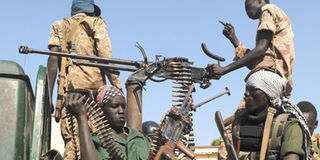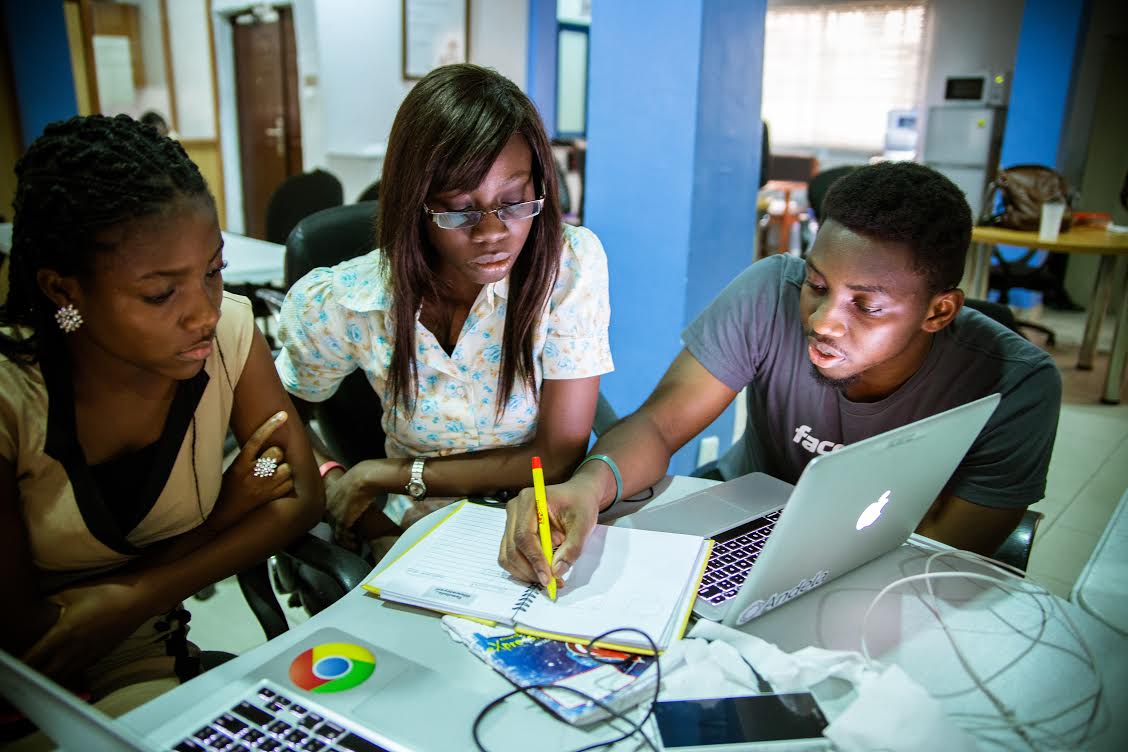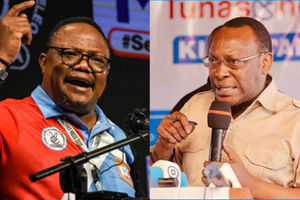South Sudan forces battle rebels

South Sudanese People’s Liberation Army (SPLA) national army soldiers patrol the streets with a pick-up truck after capturing the town of Bentiu, on January 12, 2014. Mediators pushed hard for a ceasefire in South Sudan as fighting raged today for the last rebel-held town and the full extent of the destruction wrought began to emerge. PHOTO | AFP
What you need to know:
A confidential memo from Kenya’s foreign ministry seen by AFP says that Machar has alleged Ugandan fighter jets have tried to bomb his hideout in Jonglei.
Juba, Saturday. Battles between government troops and rebels raged in South Sudan, as the UN said child soldiers had joined the more than month-long conflict with atrocities committed on both sides.
“The reports that we have come across involve mass killings, extrajudicial killings, widespread destruction and looting, and child soldier recruitment,” the UN’s Assistant Secretary-General for Human Rights Ivan Simonovic told reporters on Friday as he wrapped up a visit to the country.
He also reported rape, kidnappings, arbitrary detention and widespread destruction and looting.
Simonovic said the unrest, which started on December 15 when President Salva Kiir accused his former deputy Riek Machar of plotting a coup, can now be qualified as “internal armed conflict”.
“In the legal sense it means that besides violations of human rights and potential crimes against humanity, we can also speak about war crimes.”
He described seeing bodies that had been bound before being shot on the streets of the northern town of Bentiu, wrested back from rebels last week.
Ceasefire talks are deadlocked amid squabbling between leaders and rebel demands for the release of political prisoners.
Regional nations have already been drawn into the brutal conflict, with Ugandan troops battling alongside the government.
The army said Friday it had lost contact with forces in the key oil-town of Malakal, which both rebels and the government claim to control.
Up to 10,000 people are believed to have been killed so far in the fighting pitting forces loyal to Kiir against a loose coalition of army defectors and ethnic militia nominally headed by Machar, a seasoned guerrilla fighter.
A confidential memo from Kenya’s foreign ministry seen by AFP says that Machar has alleged Ugandan fighter jets have tried to bomb his hideout in Jonglei.
Simonovic said there were reports of “quite a number of child soldiers” in a militia force known as the “White Army” that has rampaged across the eastern state of Jonglei, fighting alongside mutinous soldiers loyal to Machar.
Child soldiers, mass killings
But the government insists it is still hopeful of a deal at talks in neighbouring Ethiopia mediated by the East African regional bloc IGAD, even though Uganda is a key member and the rebels have expressed concerned about its neutrality.
Machar has been also deeply critical of Sudan’s offer of troops to protect the oil fields of its former arch-foe South Sudan, noting Khartoum is also part of IGAD talks.
“We remain confident it will not be very long until a cessation of hostilities agreement is signed,” the government said in a statement late Thursday.
The European Union said Friday it was providing 1.1 million euros (1.4 million dollars) to support IGAD talks -- taking place in a luxury hotel in Addis Ababa -- to stop South Sudan “descending into a civil war”.
The situation on the ground appears grim, as civilians flee the latest conflict flashpoint.
“I fled from my home before sunset, and spent the night in a forest,” a South Sudanese woman told AFP after crossing the border into Sudan, alongside hundreds of crying children and exhausted adults.
According to the UN, some 468,000 civilians have fled their homes as the violence spiralled into ethnic killings between members of Kiir’s Dinka people -- the country’s largest group -- and the Nuer community of Machar.
Malakal, the main town in northern Upper Nile state, has become one of the most bitter battlegrounds.
On Monday, rebels staged an assault to seize back Malakal -- which has switched hands twice -- but both the government and rebels insist they are in control.
“The commander in Malakal has not been accessible since yesterday,” army spokesman Philip Aguer said, without giving further details.
The United Nations is sheltering some 22,000 civilians in its cramped base, reporting tank battles and heavy street fighting in the hours after the rebels launched their attack.
Elsewhere, the army has for days talked of an imminent assault on rebel-held Bor, the capital of restive Jonglei state, which has already changed hands three times since fighting began.
Civilians have again fled the flashpoint South Sudan town ahead of the looming new assault, the United Nations said.
Numbers taking refuge in UN compounds or fleeing the country are also rising, a UN spokesman said.
“In Bor, the (UN) mission said that there are no civilians and that it has received reports of the Sudan People’s Liberation Army advancing towards the town,” said deputy UN spokesman Farhan Haq.
The UN fears there could be over 100,000 refugees by the end of January.



